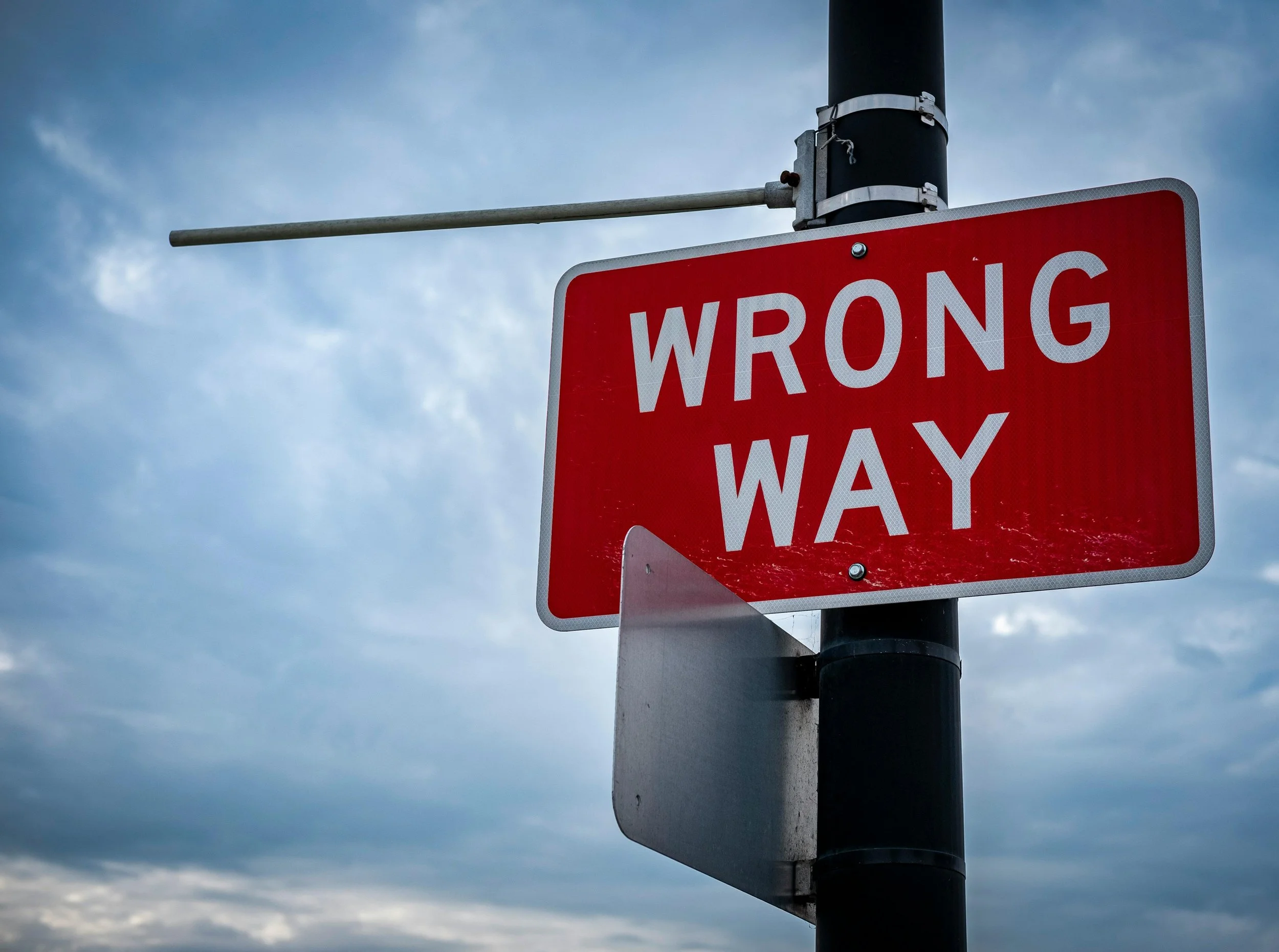

New AI-Enhanced Cyber Attacks Increase Risks for the Uninsured
In recent weeks, the tempo of reporting on cybercriminals’ use of artificial intelligence has only accelerated. What was once speculative commentary about AI-enabled threats has matured into detailed accounts of how threat actors are integrating generative AI into the core of their operations. With these developments, the attacks are both more sophisticated and more frequent, making it more a matter of “when” rather than “if” a business will be victimized. This makes robust Cyber coverage more important than ever.

Cyber Coverage for Ransomware Attacks
Cyber attacks are a serious threat to all businesses and anyone who uses the internet or computer systems. It is a common misconception that cyber attacks prey on those ignorant to cyber operations; however, that is not the case. Anyone can fall prey to the manipulation of cybercrimes because they target the natural tendencies of human behaviors such as taking shortcuts and using quick judgment. Knowing these natural human behaviors, cybercriminals have manipulated human behavior to allow successful cyber attacks. Securing proper cyber insurance policies that cover these kinds of attacks cyber attacks requires careful pursuit of cyber insurance policies in an increasingly resisting market. This is the time to locate specialists in cyber insurance coverage and employ their networks.

Tennessee Court Finds Duty to Defend Lanham Act Claims
This week, a case litigated by Gauntlett Law returned a verdict in favor of the insured. In Cincinnati Ins. Co. v. Select-Tech, Inc., Cincinnati sought declaratory judgment stating that (1) it had no duty to defend the underlying action, (2) it had no duty to indemnify any settlements resolving the underlying action, and (3) Select-Tech had no right to independent counsel. The court granted Select-Tech’s Motion to Dismiss as to the first issue and determined the remaining two were not yet ripe for determination.

Courts Routinely Failing to Accept Reasonable Constructions of Exclusions
It is widely known that courts are obligated to give an insured the benefit of the doubt when interpreting policy provisions. This rule is particularly forceful in determining the proper construction of an exclusion or other limitation on coverage. Contrary to what most policyholders might assume (and contrary to many recent rulings improperly applying coverage law principles), the court’s duty is not to evaluate the constructions offered by each party and determine which is most reasonable. Instead, the court must adopt any reasonable construction preferred by the policyholder without even evaluating the alternative construction from the insurer.

“Catch-All” Exclusions as Currently Written Are Not “Conspicuous, Plain, and Clear”
This blog supplements the analysis in the thoughtful article by Dominic Nesbitt published in the LA Daily Journal addressing the rise of “Catch-All” language added to Intellectual Property and Habitability exclusions. He focused primarily on the potential conflict with California statutory authority, but case law also shows the language and presentation of these provisions renders them unenforceable under the “conspicuous, plain, and clear” requirement developed in California case law.

Hawai’i Court Enforces “Failure to Conform” Exclusion
A recent decision in the United States District Court for the District of Hawai’i addressed two major points that previously had not been the subject of cases applying Hawai’i law. First, the court answered a question that remains an issue in many jurisdictions: what exactly is an “advertising idea” in Commercial General Liability (“CGL”) coverage for “use of another’s advertising idea in your ‘advertisement’”? Second, the court addressed the scope of the standard “Failure to Conform” exclusion.

“Knowing Violation” Exclusion Is Narrower Than Many Assume
Commercial General Liability (“CGL”) policies define “personal and advertising injury” in terms of seven enumerated offenses. Among the many standard exclusions applicable to that coverage is the “Knowing Violation” exclusion. It precludes potential coverage for “‘[p]ersonal and advertising injury’ caused by or at the direction of the insured with the knowledge that the act would violate the rights of another and would inflict ‘personal and advertising injury.’” Very few courts have taken the time to properly parse and analyze this language, which has led to conflicting interpretations (even from cases in the same jurisdiction).

Pennsylvania Supreme Court to Address Potential Ambiguity of “Arising out of”
If you examine any insurance policy, odds are good you’ll see the phrase “arising out of” used liberally throughout. Courts have widely agreed that this phrase is to be interpreted broadly when used in a provision granting coverage. But what happens when it is used in an exclusion, which courts are required to construe narrowly? After a Pennsylvania appellate court recently confronted this paradox and determined there was ambiguity in the exclusion as issue, the Supreme Court of Pennsylvania has now announced it will hear the case and address this issue.

Delaware Court Concludes Insurer Must Defend Copyright Claims Against Frontier
In the recently decided case of Frontier Communications Holdings Inc. v. Indian Harbor Insurance Co., a Delaware state court rejected the insurer arguments against potential coverage and determined Frontier was owed a defense in the underlying copyright infringement lawsuit. The court’s analysis of the “Deliberate Act” exclusion is particularly noteworthy for properly reinforcing that scienter-based exclusions cannot ordinarily be enforced to preclude an insurer’s duty to defend. Such exclusions are typically only applicable to an insurer’s duty to indemnify following an adjudication of the underlying claims.

Negligent Gun Sales Case Continues Worrying Trend for Policyholders
A common theme in high profile insurance cases is that it is difficult to have sympathy for the policyholders. The allegations against them in the underlying case, though legally unproven, are often convincing enough that it becomes easy to hope they don’t escape without consequences due to an effective insurance policy. Such is the case in a recent decision in which a firearms retailer was sued in three separate lawsuits by the State of New York as well as the cities of Buffalo and Rochester for allegedly selling gun parts in a manner that made it easy for buyers otherwise prohibited from owning firearms to acquire them. Looking at the bigger picture, however, the ruling against this unsympathetic entity sets precedent that can be used against ordinary policyholders in the future.

Massachusetts Federal Court Denies Attempt to Pierce Liberty Mutual Corporate Veil
A recent decision from a United States District Court in Massachusetts rejected the attempts of a class action suit to pursue claims against Liberty Mutual Insurance Company (“LMIC”) for contracts that named Liberty Mutual Personal Insurance Company (“LMPIC”) as the underwriter. Litigating in the world of corporate insurance is often greatly complicated by the tangled web of parent companies and subsidiaries that are, in common thought and speech, often considered a single entity. For example, The Hartford Insurance Group’s website lists 81 distinct legal entities as subsidiaries. In rejecting the policyholders’ attempts in this class action suit, the court effectively endorsed this confusing structure that makes it more difficult for policyholders to determine who to sue, where to sue, and how to actually recover funds after a victory.

First Circuit Strictly Interprets “Additional Insured” Requirements
A recent case from the First Circuit applying Massachusetts law illustrates the difficulty of securing coverage as an “Additional Insured” under the policy of another entity. The decision serves as an important reminder for businesses to procure their own policies for any potential liability rather than relying on those of others. The case also highlights the danger of delayed notice, particularly in a state like Massachusetts that has not adopted the notice-prejudice standard embraced by the majority of jurisdictions.

Insurance Coverage Options to Address False Claims Act Crackdown
Both the U.S. Customs and Border Protection and the Department of Justice (“DOJ”) have intensified their focus on enforcement of the False Claims Act (“FCA”), particularly with regard to customs compliance. These entities are closely examining how goods are classified, valued, and routed. Even for companies acting in good faith, compliance is not trivial. It can be all too easy to misstep purely by mistake without any illegal intent. This creates serious exposure that warrants careful attention in procuring insurance solutions to mitigate the effects of any violations for importers, logistics providers, and government contractors.

Jurisdictions Split on Potential Coverage for Misuse of Models’ Images
Over the past several years, a number of very similar cases have arisen in jurisdictions across the country. The fact pattern in each is nearly identical. A bar or club used models’ images without permission in advertisements, and the models collectively sued to recover damages for use of their likeness. Interestingly, despite the identical fact patterns (and, in many cases, identical policy language), the coverage cases that followed have been split in their determinations.

AI Developments and Cautionary Tales for the Legal Field
A recent federal case from the Northern District of California confirmed the legality of a common AI training method, meaning the development of AI is not about to slow down any time soon.

Insurer’s Mistaken Denial for “Tilt” Arcade Trademark Case
Insurers too often deny potential coverage of a lawsuit based on the “gravamen” of the underlying complaint. This is contrary to the basic principle of coverage law nationwide that even a single potentially viable claim is sufficient to trigger an insurer’s duty to defend. Nowhere is this focus more obvious than in intellectual property lawsuits where insurers are quick to deny coverage based on the traditional IP torts being excluded by the standard “Intellectual Property” exclusion. A recent Indiana case exemplifies how insurers are too quick to dismiss the potential for coverage of other causes of action, such as unfair competition, that typically accompany the excluded IP counts like patent, copyright, and trademark infringement.

Insurer Delays May Lead to Default Judgment
After notifying the insurer of a lawsuit, many policyholders might assume there is no more to be done until the insurer accepts or denies its defense obligation. This sentiment is even reinforced by the “Voluntary Payments” provision found in most policies that states the insurer will not reimburse defense expenses incurred without the insurer’s permission. The average policyholder cannot be expected to know that courts have recognized the limited scope of those provisions’ application. With that in mind, it is hardly surprising that insurer delays could result in a default judgment.

Narrowly Construing “Voluntary Payments” Provisions as a Limitation on Coverage
Standard Commercial General Liability (“CGL”) policies contain a “Voluntary Payments” clause, which states the insurer must not “voluntarily make a payment, assume any obligation, or incur any expense for damages [or] loss[.]” Courts have recognized that this language cannot be enforced literally as it is written. Litigation over these provisions typically focuses on the actions of the policyholder, but, interpreted broadly, these provisions could allow insurers to bypass state laws requiring prejudice for late notice. Furthermore, they may incentivize insurers to delay their decisions of whether to defend in the hope that the underlying lawsuit will resolve itself. Neither of these practices should be tolerated by the courts.

Right to Secure Insurer Funded Settlement for Non-Suits
A filed complaint is often preceded by several other indications that litigation is imminent. A workplace injury, terminating a disgruntled employee, and receiving a demand letter are all easily identifiable signs that a lawsuit may eventually transpire. As a result, defense attorney fees are often incurred well before an actual “suit” exists. News of an imminent lawsuit may also damage a business’s reputation. Many insurers insist that these are simply necessary as they have no duty to settle a “suit” that does not exist, but that insistence is undermined by case law.

Digging Deeper: Evaluating Potential Coverage for Litigation
In-house counsel is often tasked with the difficult job of assessing ongoing or imminent lawsuits against a company to determine whether there is potential insurance coverage. The difficulties of interpreting insurance provisions, particularly those related to “personal and advertising injury,” makes this nearly impossible to accomplish for any counsel without years of experience practicing coverage law. While there is no substitute for the advice of expert coverage counsel to properly evaluate these matters, this blog offers some guidance for those attorneys making such assessments and highlights several of the most commonly overlooked avenues to potential coverage.
